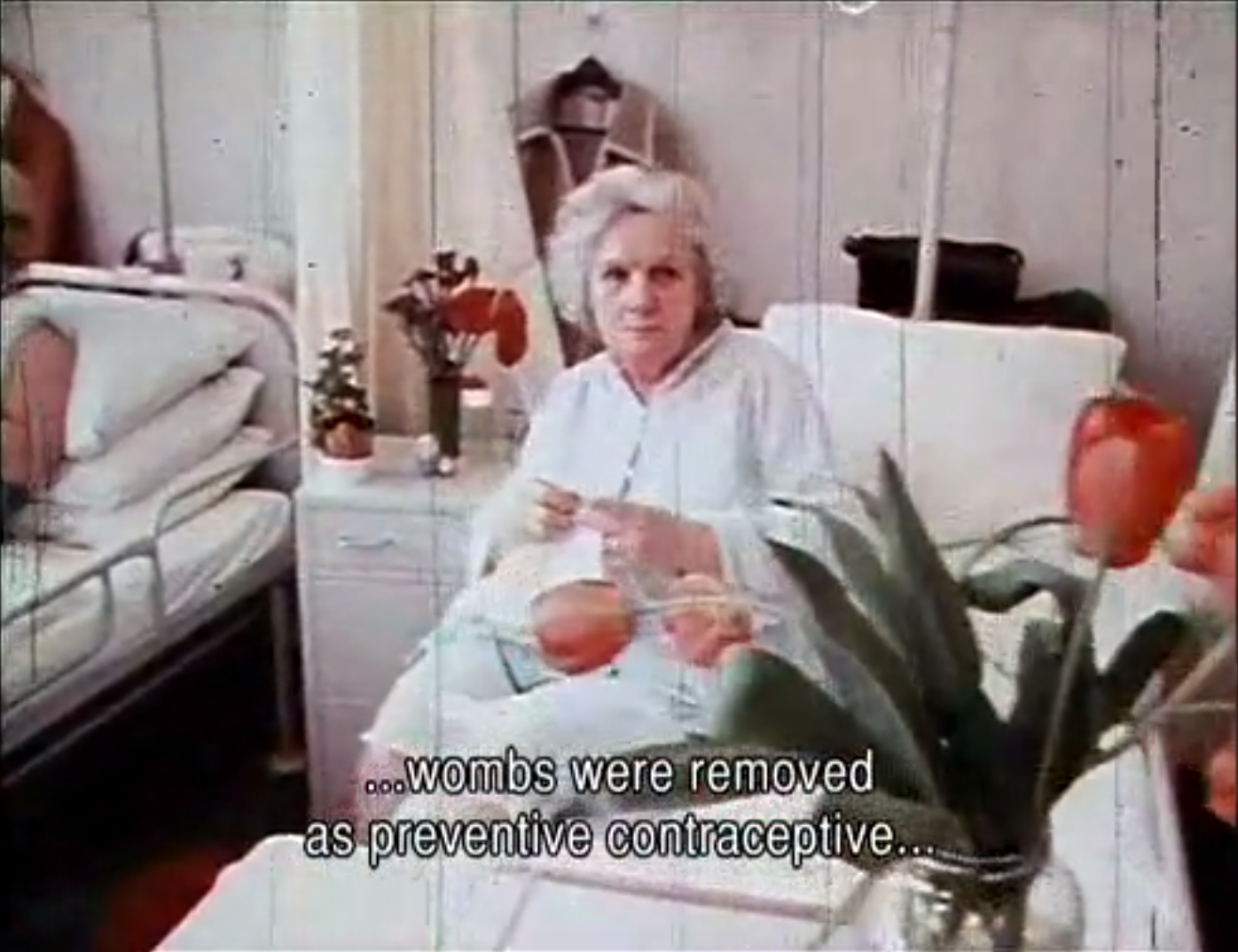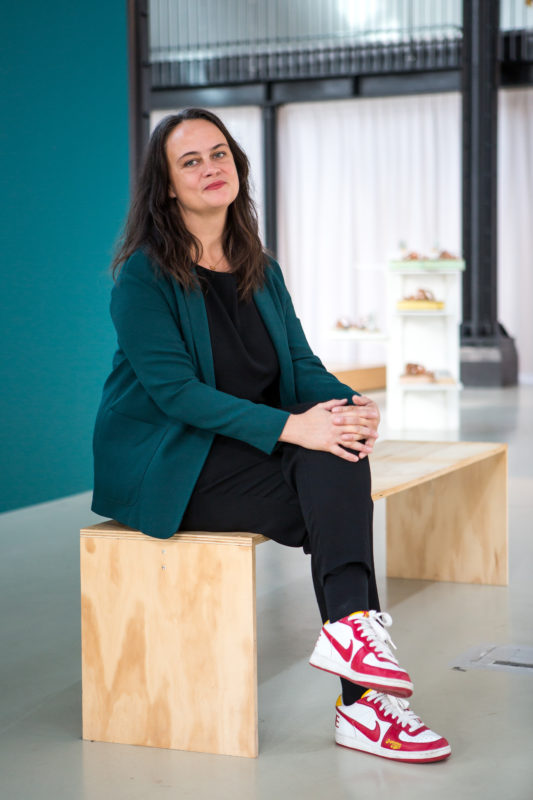 Video still - Vrouwenhulpverlening (2008)
Video still - Vrouwenhulpverlening (2008) Documentary: Feminism and healthcare in the 70’s and 80’s in the Netherlands
Up until the 1970s, women were not taken seriously by the traditional medical establishment, and their specific questions and complaints were not understood. The women’s health movement which came into being during the Second Wave of the women’s movement in the Netherlands changed all that. Commissioned by Aletta – Institute on gender equality and women’s history, Grietje Keller and Josien Pieterse have made an inspiring documentary about this movement which is now available on DVD.
“I was going to have a baby, but I had no idea where it would come out”, says an older woman in the 1970s at the beginning of the Aletta documentary Vrouwenhulpverlening, ontdekken en vernieuwen (Women’s Healthcare, discovery and innovation). “When I asked my mother, she said: ‘Child, don’t ask me that question.’”
Taking women seriously
Up until the 1970s, women were not taken seriously by the traditional medical establishment, and their specific questions and complaints were not understood. In contrast, the women’s health centers, women’s therapy centers, self-help groups, and action groups that sprang up during feminism’s Second Wave did take women’s complaints and problems seriously. They were the first to openly discuss issues like incest and domestic violence. During the 1980s, the period of its greatest influence, the women’s health movement reached tens of thousands of women.
Women’s bodies: unfamiliar territory
“For most women, their bodies below the waist were a mystery, as if there was nothing but an empty space”, says Dutch psychiatrist and psycho-therapist Nelleke Nicolai in the Aletta documentary. Physicians learned that women were weaker than men and that they complained more easily. In reality, these doctors knew as little about women’s specific problems as the women themselves. As a result, they wrote countless prescriptions for sedatives, and gynecologists performed 30,000 preventive hysterectomies per year.
Energy and spirit
These scenes and situations are shocking to us today, but the documentary reminds us of what those days were like, and at the same time, shows how the women of the Second Wave rebelled with energy and creativity. “It was an interesting time”, one of the women who was involved now says in retrospect. “There was so much work to do, and we had to discover and invent everything ourselves.”
Documentary
Documentary makers Grietje Keller and Josien Pieterse have made a compelling portrait of an interesting period in Dutch history as part of the Video History Project of the Aletta. They conducted video interviews during the past year with women who played important roles in the women’s health movement and have combined the interviews with archival material from the 1970s, 80s and 90s.
Reactions from people who saw the documentary
“I watched your film, I thought it was great and informative. To me it was even a bit shocking. I never thought women in Holland were banned till late seventies from discovering their bodies or accessing information about their own body parts. I highly enjoyed watching it”.
“This is fantastic! I really enjoyed it, and wish I were involved in such a women’s group… ”
To Order
The DVD of the documentary Women’s Healthcare, discovery and innovation has English subtitles and is available for just 15 euro. It can be ordered from the Aletta. Please send an e-mail with your full name and address and your order to: pr@aletta.nl
Vrouwenhulpverlening, ontdekken en vernieuwen (Women’s Healthcare, discovery and innovation)
Direction and script: Grietje Keller en Josien Pieterse
Producer: Terrain Vague Film, 2008
Language: Dutch, with English subtitles (optional)
Time / format: 33 minutes / PAL
Price: 15 euro (5 dvd’s for 50 euro)
Feminism / Oral History /
Network
